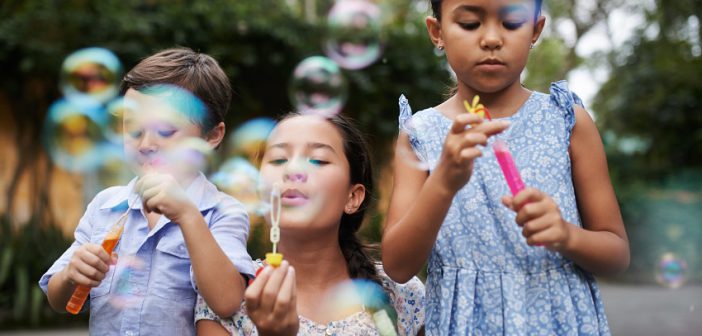As parents, we try our best to ensure our kids are happy, content, and well taken care of. That likely also means minimizing their disappointment – because who likes to be disappointed?

From broken swings at the park and not making the swim team to missing Chick-fil-A waffles fries, our children sometimes feel disappointed.
It’s simply a part of life!
Luckily, there are things you can do to guide them forward through their feelings and overcome setbacks.
Here are 5 skills you can teach your child, so they learn to handle disappointment in a healthy way.
Validate their feelings
Not getting your way is understandably disappointing. Try not to sweep your child’s uncomfortable emotions under the rug and tell them to “get over it” or the good-intentioned “it’s okay.”
Instead, work on validating your child’s feelings.
Feeling heard helps them process their disappointment.
When you tell your child to move too quickly through their feelings, they learn that how they feel inside is not as important as their outward behavior.
So when your child is disappointed, let them know you hear them:
- “It sounds like you really wanted to pick pistachio ice cream.”
- “I can tell you’re upset about not seeing your uncle today.”
- “It’s okay to feel mad and disappointed. It’s totally okay to stomp your feet to release some anger!”
Teach them to manage their emotions
Next, you can teach your child to manage their emotions and encourage healthy ways to blow off steam.
Stomping their feet, punching pillows, and heading outside (especially barefoot – the ground has natural healing properties) are easy ways your child can let loose their heavy heart.
You can also teach (and remind!) your child that they can:
- Listen to music
- Spin in an office chair
- Bounce on a yoga ball
- Do yoga or dance
- Make a splatter painting
- Throw balls outside
Share your disappointment
Practice sharing your disappointment if you feel the same way. Or relate to their feelings and share a time when you felt disappointed.
Kids like (and need) to know that they are not alone in what they feel and that their feelings are not wrong.
For example, if your best friend couldn’t make it to your baby shower, tell your eldest how sad you felt when your bff couldn’t make it.
“I know how you feel. Remember when we had a baby shower for your little brother? My best friend couldn’t come. I felt pretty bummed at first but realized I’d see her again and that many other loved ones were there to celebrate with us. “
So, remember to let your children in your own personal letdowns.
In doing so, you’re also teaching them that talking about how they feel is part of the healing process and is a healthy way to handle uncomfortable emotions.
Teach gratitude
Research shows that coping with disappointment by practicing gratitude is very effective.
Therefore, teach your child to give thanks for what they have and what they learn from their experiences and emotions.
Emphasize the beauty of finding the bigger picture. Find the calm in the storm!
Gratitude is a powerful tool emotionally flexible people are particularly good at using. We want our children to be able to hold space for their emotions yet move through them in a way that lifts their spirit.
Again, always validate your child’s emotions first. Then after the fiery coals have cooled, remind them to look for the good, the lesson, or the new perspective.
Plus, gratitude is a skill the whole family can benefit from!
Have a feel-good fallback
To help kids wade through disappointment, bust out their favorite fun stuff!
Let them play their favorite video games or have a small slice of cake in the afternoon that’s meant for dessert. Watch Finding Nemo in its entirety.
Can you take them to the park, movies, or the Dollar Tree for a few fun trinkets?
Or what about a cuddly new Squishmallow to add to their quiet corner?
In short, don’t be afraid to give in to a little extra fun time (which is probably screen time, let’s be honest!)!
However, if you don’t want to hand over the reins for a free for all, give your child 2-3 approved choices and let them pick from those.
Disappointment is a fact of life. Teach your child how to hold space for their feelings, talk about them, and work to see the bigger picture by practicing gratitude. These emotional tools will help them build their inner confidence and instill that they can handle what life throws their way.
How do you help your child deal with disappointment? Share your thoughts in the comments below!
Bio
Kris McCormick is a boy mama, wife, and blogger. Since becoming a mom six years ago, she’s been researching the best advice, resources, and baby gear from small businesses to make pregnancy and child-raising easier for all parents.





A very excellent blog post. I am thankful for your blog post. I have found a lot of approaches after visiting your post.
Hello, this topic is very close to me, I have experienced it more than once, in some moments this one helped me mobile application 7 leaf plant identification .I hope it will help you too.
Glad you set up this io games post. It is very useful for everyone.